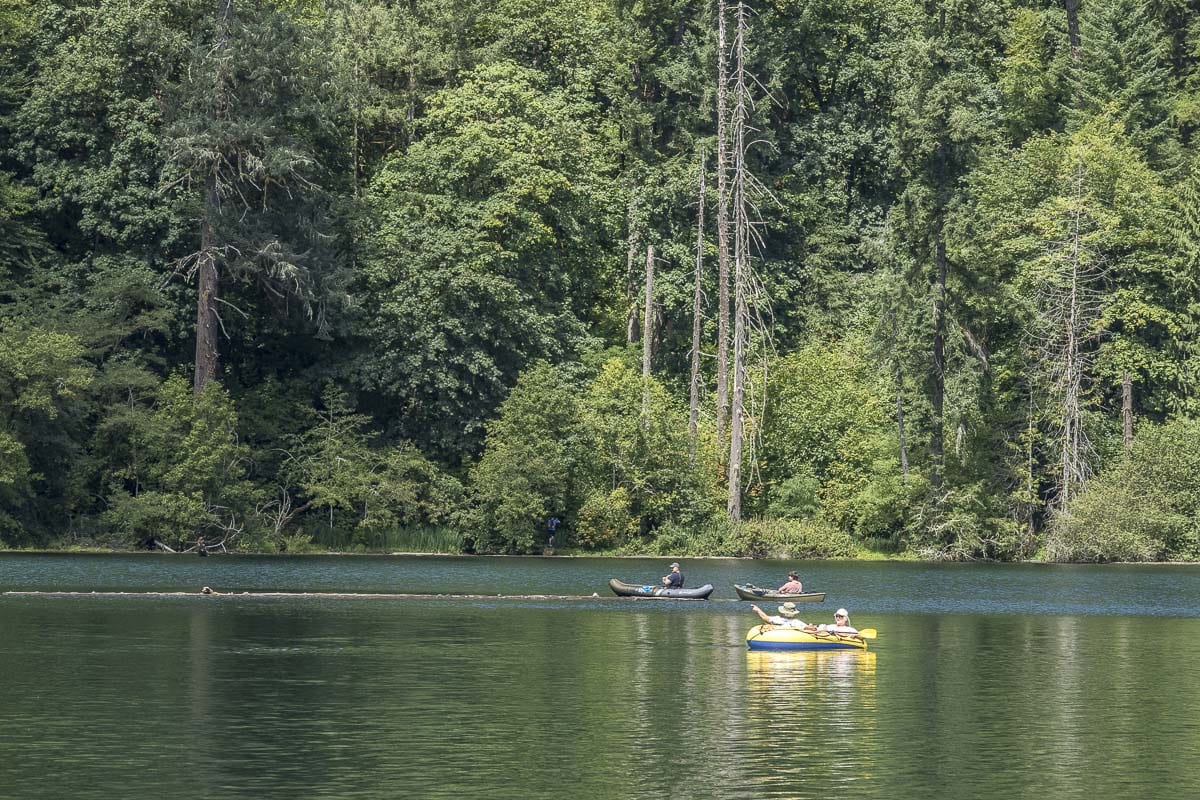VANCOUVER — With warm weather on the horizon, Clark County residents may soon be heading to local waterways for the first swim of the season. But area lakes and rivers are still cold, and water may be moving quickly. Public Health encourages everyone to follow a few simple strategies to stay safe and healthy while enjoying the water now and throughout the summer.

Know the water conditions
- Lakes and rivers in Southwest Washington are still cold enough to shock and immobilize even the strongest of swimmers.
- Rivers are high and swift from rain and snow melt and may be carrying debris.
- Avoid fast-flowing waters. This includes rivers and ocean beaches with riptides.
- Know your limits. Drowning often occurs when a swimmer tires.
- Don’t swim alone.
In addition to monitoring river conditions, Public Health urges people of all ages to follow these tips for safe swimming and recreating in all bodies of water:
- Never leave children unsupervised in or near water. Drowning can happen swiftly and silently. Supervision requires complete attention, even if another adult is present.
- Wear a life jacket when swimming anywhere without lifeguards or whenever on a boat, personal watercraft, inner tube or other water sport equipment.
- Ensure children always wear life jackets. Inflatable toys do not keep children safe. By law, children 12 and younger must wear a Coast Guard-approved life jacket or vest on all vessels 18 feet or smaller.
- Avoid alcohol and marijuana use when swimming or boating.
- Don’t dive into shallow water or jump off of bridges or cliffs.
- Swim in designated swimming areas only.
Designated swim beaches
Public Health monitors water quality at three designated swim beaches between Memorial Day and Labor Day. Public Health staff collects regular water samples from Battle Ground Lake, Klineline Pond and Vancouver Lake to determine if the water quality is safe for swimming and recreating. If tests reveal potential for illness from algae or E. coli bacteria in the water, Public Health will post advisory signs. The latest water quality information is posted on the Public Health swim beach webpage.
Swimming at Clark County parks
Swimming is allowed in most Clark County parks with water access, but parks with rivers and beaches outside of the three designated swim beaches may have hazardous swimming conditions and may not have safety features. Water contact areas along the Columbia River – namely, Captain William Clark Regional Park at Cottonwood Beach, Wintler Community Park and Frenchman’s Bar Regional Park – are not considered safe for swimming due to strong currents and sudden drop-offs.
Only Klineline Pond has certified lifeguards. They will be on duty daily July 1 through Labor Day. Klineline Pond also has a life jacket loaner station for children and adults. Life jackets are donated by the International Order of the Blue Nautical Safety Foundation.
Healthy swim practices
Public Health recommends parents keep children who are not toilet-trained out of the water at swim beaches. Swim diapers and plastic covers are not effective and may give parents a false sense of security. While swim diapers may contain solid feces, they are not leak proof. Bacteria and parasites that can cause illness may still leak into the water.
Swimmers can keep themselves and others healthy by following these simple steps:
- Rinse off before and after swimming.
- Don’t swim if you’ve had diarrhea or vomiting in the last two weeks.
- Keep children who aren’t toilet trained and require swim diapers out of unchlorinated water.
- Know where the bathrooms and changing stations are located.
- Take frequent bathroom breaks. Young children should be taken to the bathroom every hour.
Information provided by Clark Co. WA Communications.




